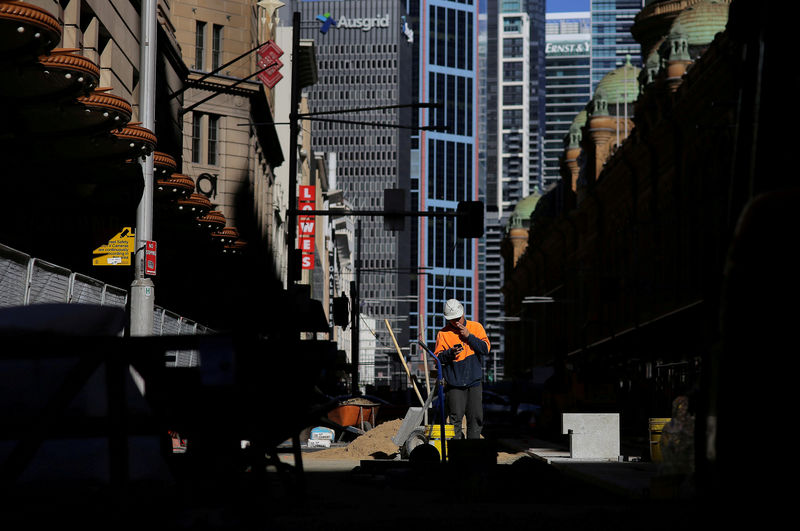SYDNEY (Reuters) - An index of Australian business conditions pulled back from record highs in March with confidence seemingly taking a hit from the threat of a global trade war as the United States slapped tariffs on China.
Tuesday's survey from National Australia Bank (AX:NAB) showed its index of business conditions fell 6 points to +14 in March, though that was still well above the long-run average of +5.5.
The survey's measure of profitability eased 4 points to +14 in March, while its sales index also slipped 4 to +20. Its often volatile measure of business confidence dipped 2 points to +7.
The survey was conducted shortly after U.S. President Donald Trump announced tariffs on at least $50 billion of imports from China, Australia's largest single export market.
NAB group chief economist Alan Oster noted the survey's measures of conditions were still equal to or above their long run averages for every industry sector.
"The strength in business conditions and leading indicators are consistent with stronger economic growth in coming quarters and the employment index is pointing to strong jobs growth which should reduce unemployment," said Oster.
The employment index eased to +9 in March, from an all-time peak of +16 the month before, but remained high historically.
The pullback in the survey's main measure will be a disappointment to the Reserve Bank of Australia (RBA) which has repeatedly cited strength in business conditions as a reason for optimism on the economic outlook.

The survey also showed little inflationary pressure with retail prices edging lower in the three months to March and labor costs moderating.